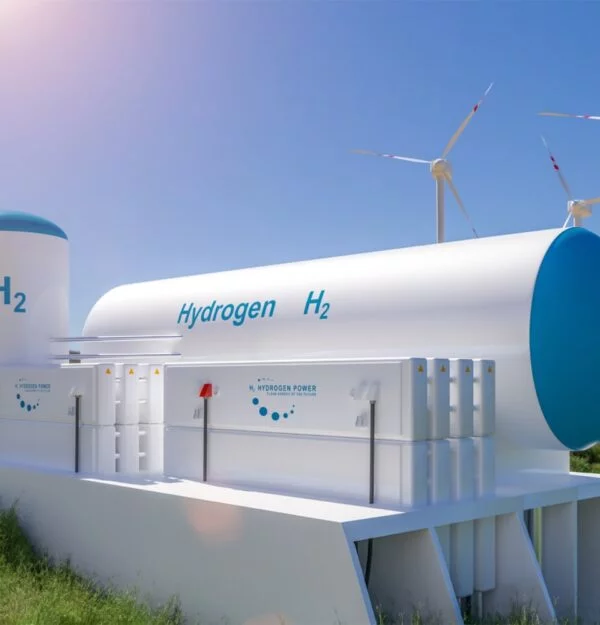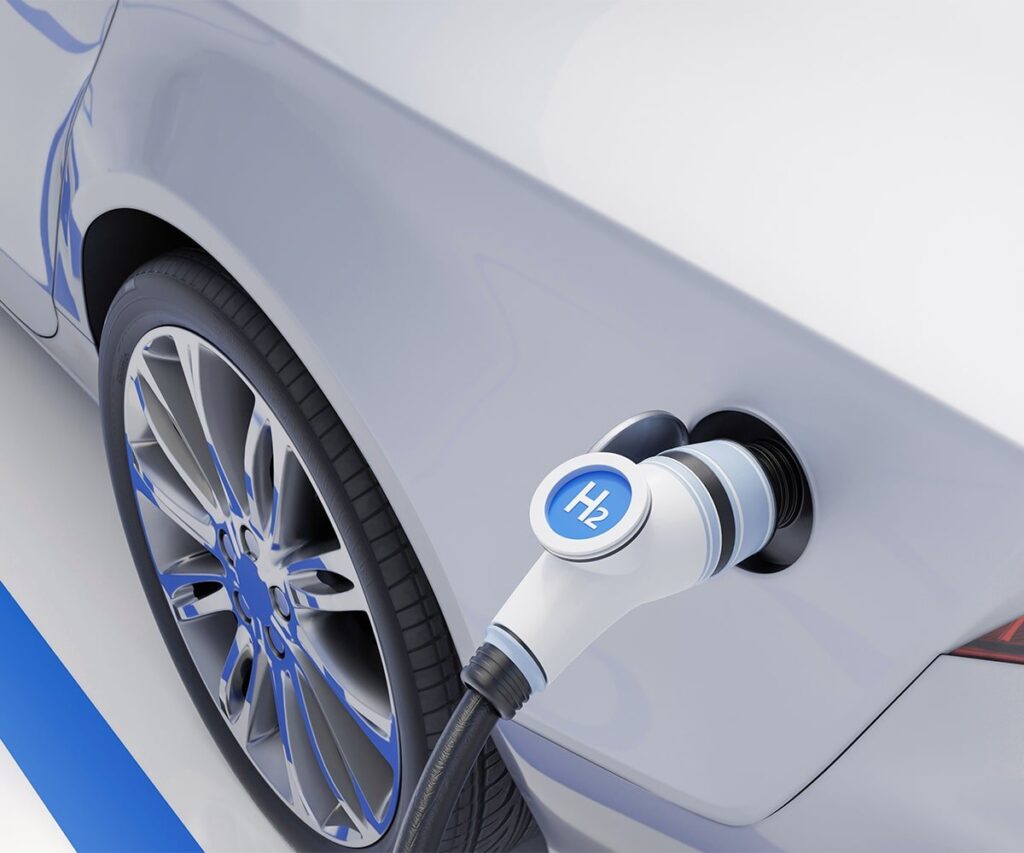
Project Details
Project Name :
مركبات وقود الهيدروجين
Category :
مركبات
Green Energy
Hydrogen fuel vehicles, also known as hydrogen fuel cell vehicles (FCVs), are a type of electric vehicle that uses hydrogen gas as a fuel to generate electricity on-board. These vehicles are powered by fuel cells, which convert the chemical energy of hydrogen into electricity, which in turn powers an electric motor to drive the vehicle.Here's how hydrogen fuel vehicles generally work:Hydrogen Storage: Hydrogen gas is stored on-board the vehicle in high-pressure tanks. These tanks are typically made of carbon fiber or other lightweight materials to maximize storage capacity while minimizing weight.Fuel Cell Stack: The stored hydrogen gas is fed into a fuel cell stack, where it undergoes a chemical reaction with oxygen from the air. This reaction generates electricity, as well as heat and water vapor, as byproducts.Electric Motor: The electricity produced by the fuel cell stack is used to power an electric motor, which drives the vehicle's wheels. This motor operates similarly to those found in battery electric vehicles (BEVs).Regenerative Braking: Like other electric vehicles, hydrogen fuel vehicles often incorporate regenerative braking systems, which capture energy during braking and convert it into electricity to recharge the vehicle's battery or supplement power to the electric motor.Water Vapor Emission: The only emission from hydrogen fuel vehicles is water vapor, making them a zero-emission vehicle option when powered by hydrogen produced from renewable sources.Hydrogen fuel vehicles offer several potential advantages:Zero Emissions: When hydrogen is produced from renewable sources, such as electrolysis powered by renewable energy, hydrogen fuel vehicles produce zero tailpipe emissions, contributing to cleaner air and mitigating climate change.Fast Refueling: Hydrogen fuel vehicles can be refueled in a matter of minutes, similar to refueling a gasoline vehicle, offering greater convenience compared to battery electric vehicles, which require longer charging times.Long Range: Hydrogen fuel vehicles typically have longer driving ranges compared to battery electric vehicles, making them suitable for long-distance travel without the need for frequent refueling.However, there are also challenges associated with hydrogen fuel vehicles, including the limited availability of hydrogen refueling infrastructure, the high cost of fuel cell technology, and the energy-intensive process of producing hydrogen. Despite these challenges, hydrogen fuel vehicles represent a promising technology with the potential to play a significant role in reducing greenhouse gas emissions from the transportation sector.



THERMAL PROCESSES
At vero eos et accusamus et iusto odio dignissimos ducimus qui blanditiis praesentium voluptatum deleniti atque corrupti quos dolores et quas molestias excepturi sint occaecati cupiditate non provident.
Safety
Experienced project engineers with a focus on safety and speed of execution.
Reliability
Experienced project engineers with a focus on safety and speed of execution.
Experienced
Experienced project engineers with a focus on safety and speed of execution.
OUR BENEFITS
Hydrogen fuel vehicles offer several benefits, which contribute to their appeal and potential as a sustainable transportation solution:Zero Emissions: Hydrogen fuel vehicles produce only water vapor as a byproduct when hydrogen is combined with oxygen in the fuel cell, making them emission-free at the point of use. This can help reduce air pollution and mitigate climate change, especially when hydrogen is produced using renewable energy sources.Energy Efficiency: Hydrogen fuel cell vehicles are more energy-efficient than traditional internal combustion engine vehicles. Fuel cells can convert a higher percentage of the energy stored in hydrogen into usable electricity compared to the combustion process in gasoline or diesel engines, leading to better overall energy efficiency.Long Range: Hydrogen fuel vehicles typically offer longer driving ranges compared to battery electric vehicles (BEVs). This is because hydrogen can be stored in tanks and refueled quickly, allowing for extended travel distances without the need for lengthy charging stops.Fast Refueling: Hydrogen fuel vehicles can be refueled in a matter of minutes, similar to conventional gasoline or diesel vehicles. This quick refueling time is advantageous for drivers who are accustomed to the convenience of traditional refueling stations.Versatility: Hydrogen can be produced from a variety of sources, including renewable energy sources such as wind, solar, and hydroelectric power, as well as natural gas and biomass. This versatility in production methods can help diversify energy sources and reduce dependence on fossil fuels.Reduced Dependency on Imported Oil: Hydrogen fuel can be produced domestically, potentially reducing reliance on imported oil and enhancing energy security for countries that invest in hydrogen infrastructure and production.Silent Operation: Like battery electric vehicles, hydrogen fuel vehicles operate quietly, contributing to reduced noise pollution in urban environments.Potential for Grid Balancing: Hydrogen fuel cell vehicles can also serve as energy storage devices, with the potential to feed electricity back into the grid when parked and connected to a charging station. This vehicle-to-grid (V2G) capability could help balance electricity demand and supply, improving grid stability.While hydrogen fuel vehicles offer many benefits, there are also challenges to widespread adoption, including the high cost of fuel cell technology, limited infrastructure for hydrogen production and refueling, and concerns about the environmental impact of hydrogen production methods. Nonetheless, ongoing advancements in technology and infrastructure are addressing these challenges, making hydrogen fuel vehicles an increasingly viable option for sustainable transportation
